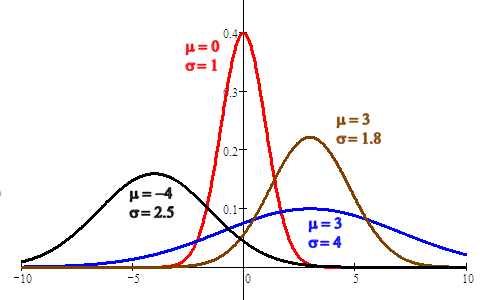Qualitative studies are essential to understanding the field of addiction and recovery precisely because whether one is talking about the misery of addiction, the liberation of recovery, or the dynamics and experience of those working in the field - at the heart of the field is the question of experiential knowledge and personal accounts of … Continue reading The Age Old Story – Differing Compensations, Differing Expectation in Peer Recovery Workforces – A Review of Alavi et al., 2023
Author: Dr. Austin McNeill Brown, MSW, PhD
Additional Commentary on the Mathematical Model of Recovery
Think about the impact of this - there are thousands of such relations between pathological states and the inverse states of wellness.
Let’s talk critique- Part deux
Credit: knowledgeworks I received some interesting questions regarding my post on critique, so I figure it is time, as Paul Harvey says, to tell the rest of the story (while I have the time). Anyone who has studied politics and philosophy knows that for every argument there are counterarguments and alternative theories that come from … Continue reading Let’s talk critique- Part deux
Let’s Talk About Critique
Credit: The Virtual Instructor I've been working on a paper on recovery that is sort of a philosophical treatise on what it means to be critical regarding science, practices, and system design in relation to substance use disorders, care, and treatment. As Jason had noted in one of his earlier posts, there is plenty of … Continue reading Let’s Talk About Critique
Understanding the Relational Dynamics of Recovery
The complexity of addiction requires an equally complex notion of recovery. Holistically, recovery is generally conceptualized across three classes of variables- individual, social, and ecological. The biopsychosocial model of recovery fits well within this framework. Expanding recovery conceptually to include the environmental sphere of variables has allowed for new contextual and structural factors to be … Continue reading Understanding the Relational Dynamics of Recovery
Bowling; A Fictional Metaphor About Science and Advocacy
How to gauge the benefits of bowling? Let's say I cannot bowl very well. I have a bowling problem. My father loved bowling and was usually good at it, but he was also plagued with times where he was not very good; he was very hard on himself during those times. In fact, every time … Continue reading Bowling; A Fictional Metaphor About Science and Advocacy
The First Duty of the Revolutionary
It has been an exciting week in the recovery space. Most notably, with Jon Soske's paper on what to keep, drop, and modify in the recovery world. Jon is a friend whom I met through Jason Schwartz. I was in Providence at the Collaborative Perspectives on Addiction Conference (APA Division 50), filling in for my … Continue reading The First Duty of the Revolutionary
Recovery Pipelines; A Personal Account
My human geography classes have me thinking a lot about the connections between people, place, and the affective dimension or field that arises from communities with a shared purpose, location, and hope. When combined with ideas about develecology1 and the ways identity is shaped and formed through and across dimensions of various social roles, I … Continue reading Recovery Pipelines; A Personal Account
Reflections on Current Debates Regarding Recovery Definitions
Science evolves through collaboration, debates, support, and refutations between scientists. This fact is no less true in the science of recovery. Recent discussions regarding new boundaries in the definition of "recovery" illuminate the mechanics of what scientists, clinicians, and people in recovery feel are essential characteristics of recovery. As one of the authors regarding the … Continue reading Reflections on Current Debates Regarding Recovery Definitions
A Time of Hope and Trepidation in the State of the Art
On Las Meninas by Velasqez, Foucault writes, "In appearance, this locus is a simple one; a matter of pure reciprocity: we are looking at a picture in which the painter is in turn looking out at us. A mere confrontation, eyes catching one another’s glance, direct looks superimposing themselves upon one another as they cross. And yet … Continue reading A Time of Hope and Trepidation in the State of the Art

